As a complex system, the circular economy is associated with efficient tools for addressing climate change, biodiversity, and ESG issues. This key message was at the forefront of the sixth Circular Economy Summit, which took place on November 23, 2023, attracting close to 180 participants and significant interest. During the event, the ‘The Tulip Award for Sustainability’ was presented.
‘Each year, we use 1.75 times as many resources as Earth can replace to sustain our lifestyles, and the supply of ecosystem goods and services cannot keep up with our needs. Damaged ecosystems exacerbate climate change, undermine food security, and put people and communities at risk. While real social needs could be met with 30% less material consumption, our economy is still continuously using more material. In this situation, accelerating the transition to a circular economy is in our common interest, as the associated reduction in consumption alone would represent a solution to numerous climate and ecological crises. Immediate action is also needed in this area.’ – said Attila Chikán Jr., President of BCSDH, in his speech.


The index of global material use is deteriorating. While in 2018, 9.1% of all raw materials used in the world economy came from recycled materials, this number had dropped to 7.2% by 2023. And as business as usual continues, the amount of material used globally may increase by up to 84% by 2050, while global social needs could be met with 70% of the material that is currently used. Reducing consumption to this extent would significantly positively impact several ecological tipping points
Today, the Circular Economy Platform, established at the initiative of the Hungarian Business Council for Sustainable Development (BCSDH), the Dutch Embassy, and the Hungarian Ministry of Innovation and Technology, consists of 99 members. These institutions have highlighted knowledge-sharing, collaboration, and immediate action as the platform’s most important tasks.


According to the BCSDH’s second survey on the state of the circular economy in Hungary, 73% of domestic companies see the transformation of production processes as crucial, while 66% focus on extracting resources from waste, and 62% are prioritizing waste management for the future. Consumer behaviour change will not be the primary driver of these changes, but a significant proportion of current initiatives target consumers and could play a crucial role in fostering awareness. However, systemic changes are still lacking.

Dr. Anikó Raisz, State Secretary for Environment and Circular Economy at the Ministry of Energy, spoke about the current regulatory environment for the circular economy in Hungary.
In Hungary, phasing out single-use plastics, implementing an extended producer responsibility system, introducing a new mandatory deposit system, and the newly operational concession-based waste collection system are seen as the sole opportunities to meet EU and Hungarian climate goals. These initiatives could also mark significant progress toward adopting a circular economy. Our goals are ambitious, and the OECD study released this spring, in which BCSDH played a significant role, provides guidance for achieving them.
According to the BCSDH survey, 69% of companies expect assistance transitioning to a circular economy involving government incentives, while 59% look to regulatory measures for support. There is great anticipation regarding these ongoing changes.


Among our internationally recognized speakers was Vincent GRUIS, Prof. Dr.ir., Professor of Housing Management at Delft University of Technology, who discussed the transition path towards more circular and sustainable construction—an essential area. Joost van Dun, the Circular Economy Lead at ING Bank, showcased through examples how circular economy criteria can be applied in sustainable finance during his presentation.


Camilla Visconti, Consultant at Circle Economy Consulting, highlighted during her presentation on the CSRD toolkit that it is the first reporting system in which reporting on progress in the circular economy is mandatory.
The role of SMEs (Small and Medium-sized Enterprises) in the transition to a circular economy is crucial, and they may be supported on their path towards sustainability by the OPTEN ESG Index. Dr. Hajnalka Csorbai, Strategic Director of OPTEN Informatikai Kft., introduced this index during the event.

A panel discussion focused on the relationship between the circular economy and ESG. Participants, including Tibor Bodor, CEO of ING Bank; Kam Jandu, CEO of Budapest Airport; Károly Gábor Nyári, Vice President and Head of FP&A at Grundfos; and Richárd Végh, CEO of the Budapest Stock Exchange, explored the significance of ESG compliance across various sectors and how fulfilling ESG criteria can be supported by the principles of the circular economy. The roundtable was moderated by Irén Márta, Managing Director of BCSDH.
Transitioning towards a circular economy and sustainable operations involves the crucial integration of ESG (Environmental, Social, and Governance) factors into the investment process. This framework ensures transparent, sustainable business practices that are measurable and reportable. Both the circular economy and ESG are pivotal for mitigating investment risks, meeting commitments to climate protection and biodiversity, and leveraging new forms of sustainable growth.

Az event’s second panel discussion focused on reforming Hungary’s waste management system, moderated by Bálint Bartha-Horváth PHD, Senior Sustainability Consultant at CBRE. Participants included Martin Basila, Founder and CEO of Sensoneo; Dr. Viktória Bodnár PHD, Managing Director of IFUA-Horváth & Partners Ltd.; and Tivadar Runtág, Material Flow Director at MOHU MOL Waste Management Ltd.
The new comprehensive waste management system has launched with the aim of achieving 90% functionality within three years. There are many unforeseen challenges ahead. Several smaller, older players did not register in the system, and the extent of illegal waste imports exceeds initial estimates. The stakes are high as significant volumes of valuable materials are ending up in the trash. The mandatory deposit return system starts with the installation of approximately 2000 return machines nationwide, which could increase to 4000-6000. Educating stakeholders is crucial, thus a significant and multi-layered campaign is launching to ensure that consumers across various age groups and market players understand every detail of the new system.

The Hungarian Green Building Council (HuGBC) has made an unprecedented and meaningful zero-carbon recommendation specifically for buildings in our country. This recommendation urges action from stakeholders within the construction industry to achieve the crucial 2050 climate goal. Gábor Szarvas, President of the HuGBC, presented this recommendation.
‘The Tulip Award for Sustainability’
For the first time, the Circular Economy Summit hosted the presentation of the “Tulip Award for Sustainability,” established by the Embassy of the Kingdom of the Netherlands in Hungary.
The aim of the award is to annually recognize SMEs, startups, companies, or nonprofit organizations that demonstrate outstanding performance in sustainability within a particular industry. This year’s award theme was the ‘Sustainable and Circular Construction Industry.’
“The circular economy remains an important priority for the Netherlands as the country wants to be fully circular by 2050. To achieve this ambitious goal, we should also build more sustainably as the construction sector accounts for half of the raw material consumption in the Netherlands,” – emphasized Désirée Bonis, Dutch ambassador to Hungary, in her speech.


This year, the prize was won by a young architectural company, Equinox International, for its holistic approach to the sustainability of its residential buildings. A special prize was given to Café Plusz Kft. for promoting hempcrete as a sustainable construction material.
A six-member professional jury evaluated the applications that were submitted, comprising:
Dr. Barbara Botos, Travelling Ambassador for Climate Affairs and Climate Diplomacy, Ministry of Energy
Zsombor Barta, Ambassador of the Hungarian Green Building Council (HuGBC)
Andrea Istenesné Solti, President of the Hungarian Business Leaders Forum (HBLF), Shell Hungary Zrt. Chair
Zoltán Krázli, Program Director of GS1 Hungary Nonprofit Ltd., Coordinator of the Lean & Green Platform
Irén Márta, Managing Director of the Business Council for Sustainable Development Hungary (BCSDH)
Katinka Zinnemers, President of the Dutch-Hungarian Chamber of Commerce (Dutcham), Managing Director of Abacus Medicine A/S

BCSDH – one of the founders of the Circular Economy Platform – strives to be a community of highly committed companies and business leaders and is encouraging and supporting its more than 140 member companies – and, following them, the business sector as a whole – to go ‘beyond emissions’ and focus on biodiversity conservation and restoration and reverse growing social inequality.
This is what our Time to Transform 2030 (a decade-defining program built on the achievements of Action 2020) is all about, to which our Circular Economy Platform is also connected.
Thanks to the main sponsor of the Summit:
Thanks to our sponsors of the Circular Economy Platform 2023:
****
What is a circular economy?
In the current linear economic model, technical and biological components are extracted from nature, transformed, and, after use, treated as waste, much of which is not recycled.
In the circular economy model, on the other hand, metabolic processes occur in a closed loop, waste is almost 100% recycled, and biological and technological components are returned to circular processes without any loss of quality.
Therefore, the shift to a circular economy involves rethinking the relationship between markets, consumers, and natural resources through the responsible management of natural resources.
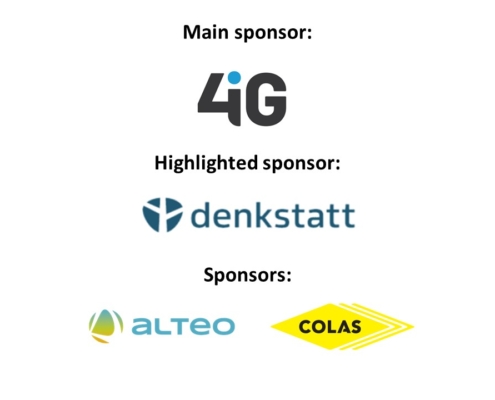

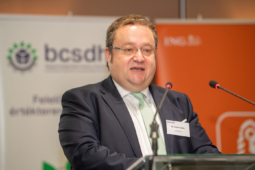

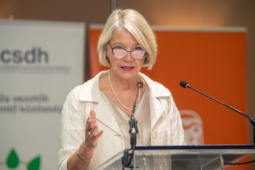
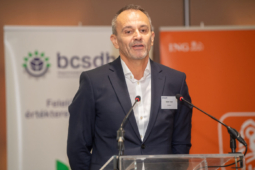

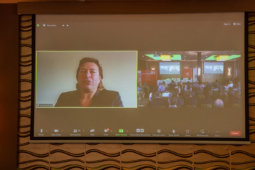

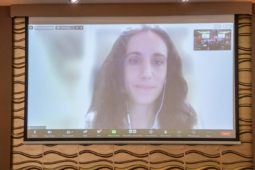
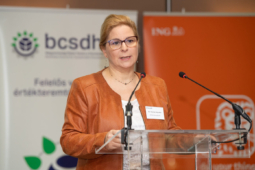
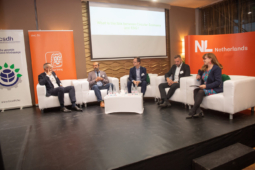
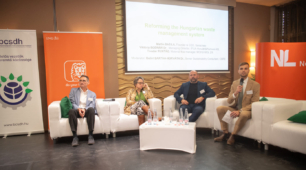
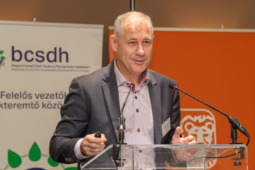

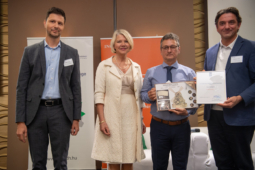
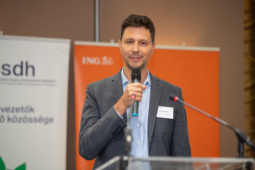

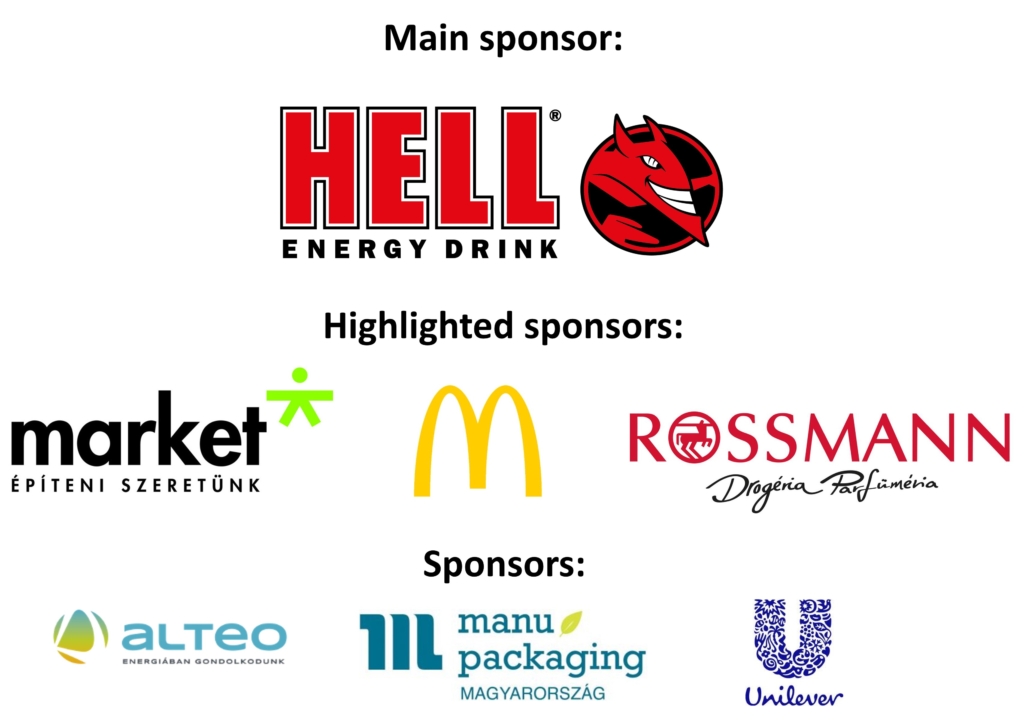
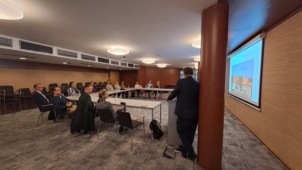

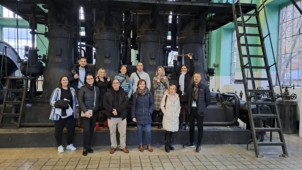













 Rózsai, CEO of KPMG, provided participants with insights into the results of the KPMG CEO Outlook 2023 survey conducted among over 1,300 CEOs of the world’s largest companies. Currently, geopolitics and broader political uncertainty represent the most significant risks to a company’s business success. While dealing with this increasingly uncertain situation, the strategic priorities for business leaders remain the following: technology-digitalization-AI, the ESG framework, and the workforce-talent trio.
Rózsai, CEO of KPMG, provided participants with insights into the results of the KPMG CEO Outlook 2023 survey conducted among over 1,300 CEOs of the world’s largest companies. Currently, geopolitics and broader political uncertainty represent the most significant risks to a company’s business success. While dealing with this increasingly uncertain situation, the strategic priorities for business leaders remain the following: technology-digitalization-AI, the ESG framework, and the workforce-talent trio.

